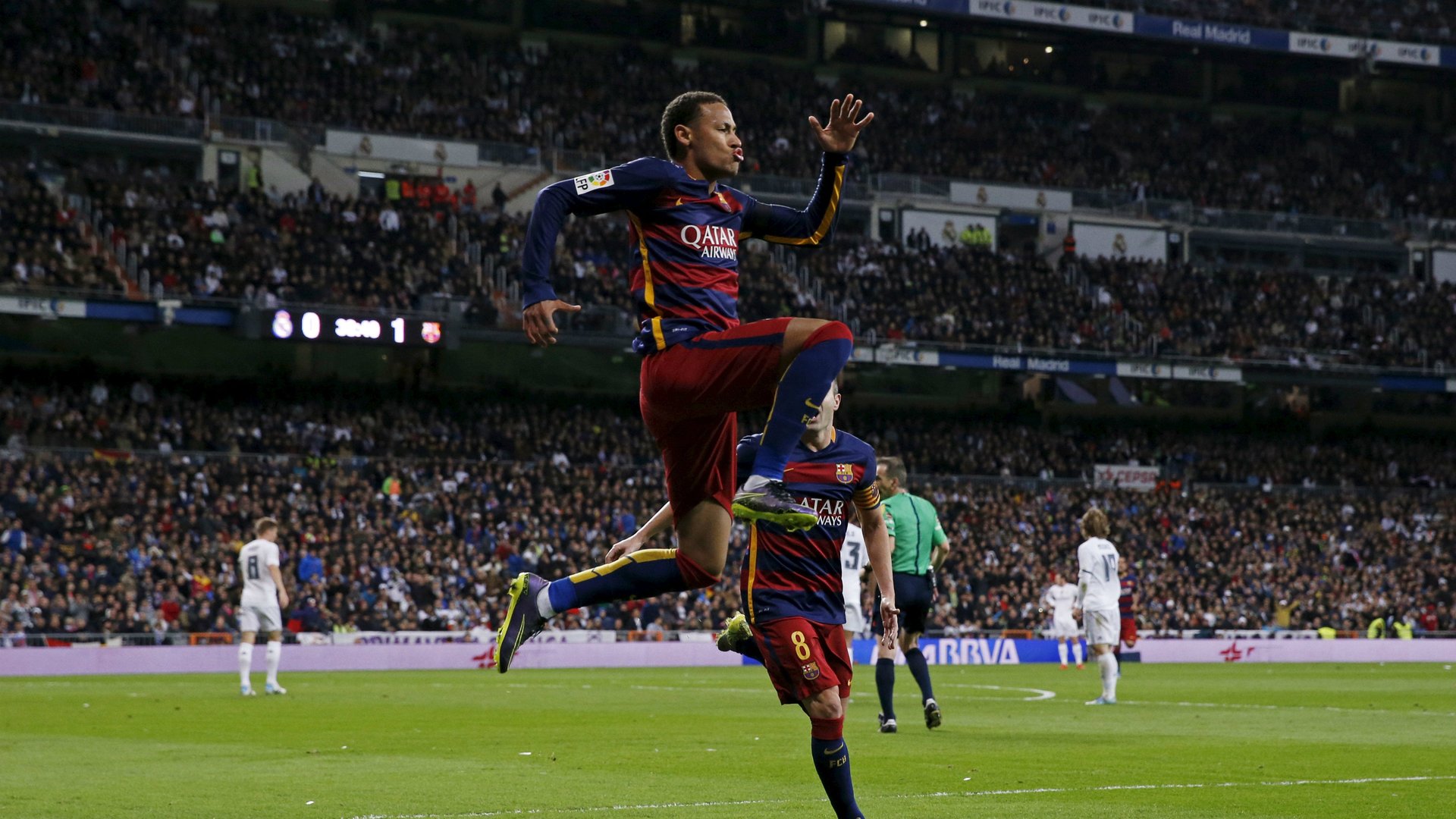Soccer star Neymar’s record-breaking pay is good news for his teammates
In the biggest payday ever for a soccer player, French football club Paris Saint-Germaine bought Barcelona FC’s former striker, Brazilian-born Neymar da Silva Santos Jr., on Aug. 3 for €222 million. The sum more than doubled the previous record of 97.5 million euros for Paul Pogba’s return to Manchester United from Juventus last year, and almost quadrupled the €63 million PSG paid in 2015 for the transfer of Italian Angel Di Maria from Manchester United.


In the biggest payday ever for a soccer player, French football club Paris Saint-Germaine bought Barcelona FC’s former striker, Brazilian-born Neymar da Silva Santos Jr., on Aug. 3 for €222 million. The sum more than doubled the previous record of 97.5 million euros for Paul Pogba’s return to Manchester United from Juventus last year, and almost quadrupled the €63 million PSG paid in 2015 for the transfer of Italian Angel Di Maria from Manchester United.
Such sums make star players wealthy. They also have a trickle-down effect for the entire team.
A superstar player who lives up to his pay by scoring plenty of goals can transform a substandard team into a champion of the league. All players stand to benefit as winning usually results in large financial gains for the entire team as well as meaty sponsorship deals for everyone. Not to mention the everlasting fame and glory of becoming a champion.
The effects of stardom aren’t restricted to the sports field. Research from global consultancy Bain and The Economist’s Intelligence Unit found that on average, 15% of a company’s workforce—around one in seven employees—is made up of exceptionally talented individuals. The best-performing companies usually place these stars in areas where they can expect to have the biggest impact on a company’s performance. A study from National Bureau of Economic Research in 2014, for example, found that just one year after a superstar joined a department, the average quality of those who joined the department increased significantly, at all levels. PSG likely hopes that the recent addition of Neymar will help them lure yet more talented players to the team.
Managers do need to ensure that overall employee morale isn’t undermined by the big paychecks of stars. Research from economists at the University of California, Berkley, found that employees who discover they are paid less than others doing similar work are less satisfied with their jobs. Wharton management professor Matthew Tidwell notes that pay disparity can lead to ”resentment and ultimately to disengagement.” It can also hurt cooperation within teams. Findings from a month-long experiment with Indian manufacturing workers published in 2016 found that people worked much better with individuals outside of their team, whose pay they did not know, than with their colleagues whose pay was known.
But another interesting result came out of the 2016 study. When people can observe the productivity of their colleagues, the negative effects of unequal pay on employee morale disappear. Given that his performance will be highly visible, a successful season from Neymar could be enough to protect him from some seriously jealous teammates.